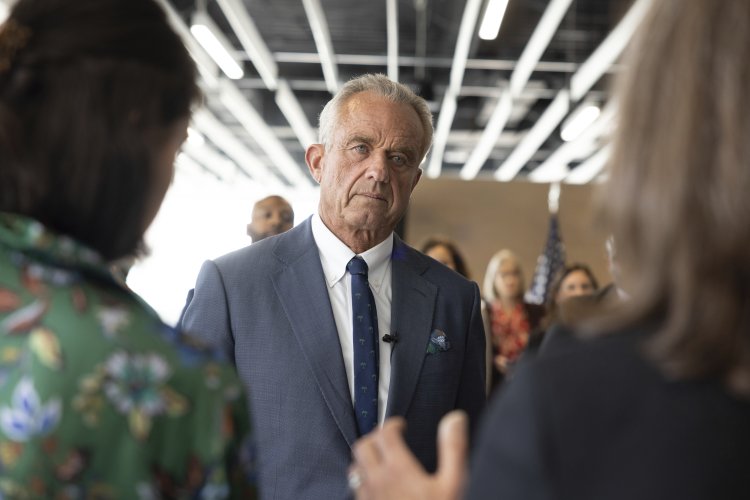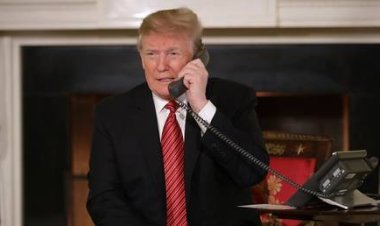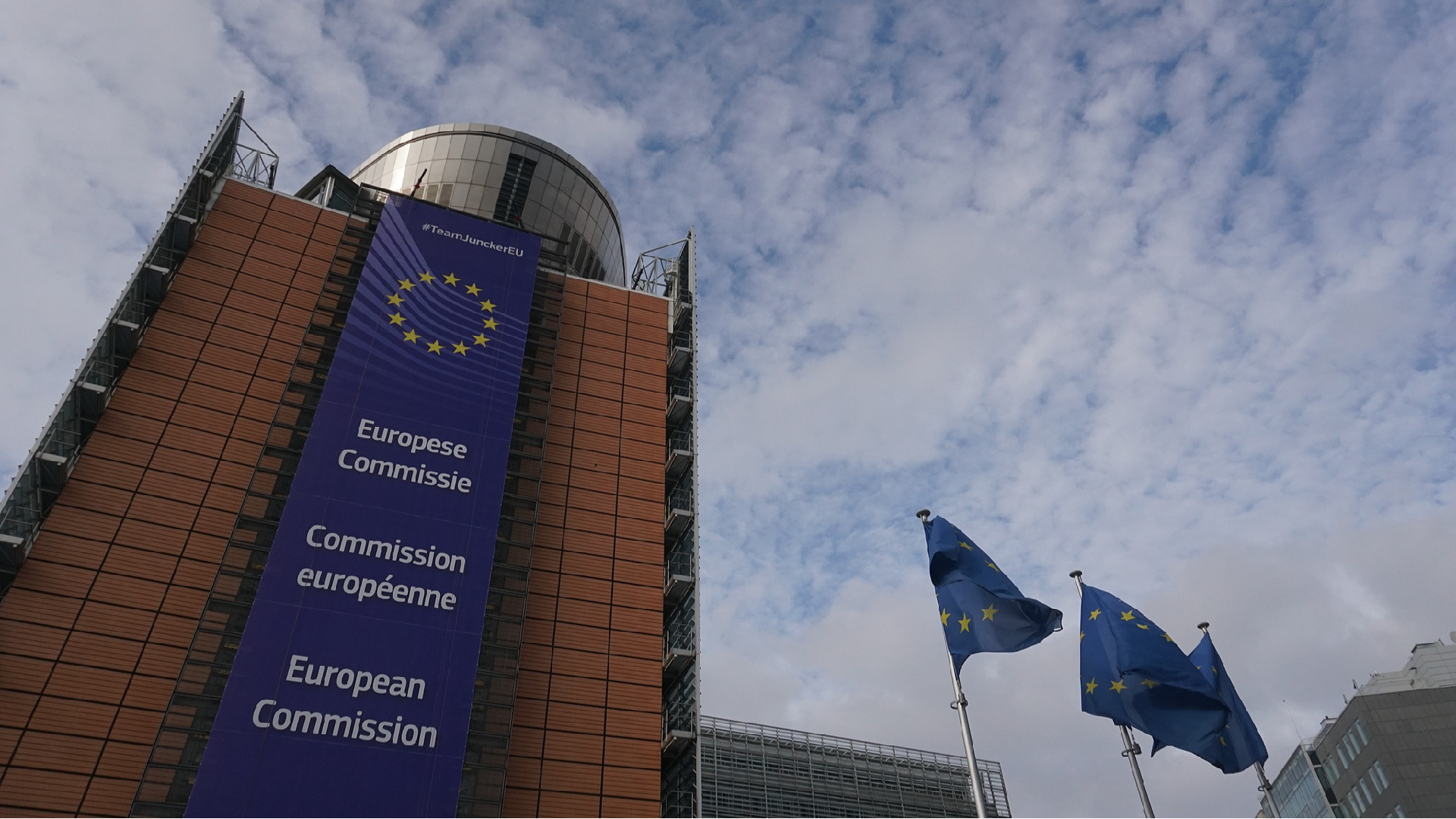RFK Jr. Promised a Health Care Revolution in America. It's Unfolding More Quickly Than Anticipated.
Robert F. Kennedy Jr.'s significant reform has transformed the U.S. health system in just weeks.

Despite the executives expressing worries about Kennedy's history of anti-vaccine activism and his lack of governmental experience, Trump dismissed their apprehensions, telling them not to worry. “I’ll keep Kennedy under control,” he reassured them.
However, five months later, federal health officials, industry executives, and the public health community report heightened anxiety regarding Kennedy's leadership. In his initial seven weeks at the Department of Health and Human Services (HHS), Kennedy has significantly altered the U.S. health infrastructure by dismantling entire agency divisions and abruptly changing policy priorities. Current and former employees described the department as being in an unprecedented state of upheaval.
Kennedy’s administration has pushed out leading scientists responsible for developing vaccines and assessing drug safety, thereby undermining decades of expertise and institutional knowledge. Essential government offices, such as those that oversee safe drinking water and alerting the public to drug contamination, have been severely impacted.
Simultaneously, Kennedy’s appointees have sought tighter control over scientific decision-making within agencies like the Centers for Disease Control and Prevention (CDC) and the Food and Drug Administration (FDA), diverging from established protocols and stirring unrest in a health sector that represents nearly one-fifth of the U.S. economy.
"It's a mess," remarked a former senior HHS official, who spoke anonymously to discuss internal matters. "What was once a very robust place to work, that was trying to lead on innovation, is gone. It's just gone."
The swift changes, highlighted by last week’s mass termination of 10,000 employees, have left HHS staff feeling traumatized and the broader health community distressed, according to interviews with nine current and former health officials, as well as five public health experts and industry representatives, most of whom requested anonymity due to fears of retaliation.
Initially, many had entertained cautious optimism regarding Kennedy's leadership, reassured by his focus on chronic diseases and offers to move past aggressive activism in favor of a collective goal: the health of the American public.
That optimism, however, seems to have evaporated, as Kennedy has undertaken layoffs while pursuing inquiries into the debunked link between vaccines and autism and has complicated communication regarding a measles outbreak that has resulted in two child fatalities.
“This has set us back dramatically,” asserted Michael Osterholm, an epidemiologist and director of the University of Minnesota’s Center for Infectious Disease Research and Policy. “We are nowhere near as safe now as we were even 10 weeks ago.”
When questioned about the article, an HHS official, who wished to remain anonymous, described the recent reorganization as "necessary to reorient the department toward greater effectiveness and efficiency."
"The department’s mission is to deliver better outcomes for Americans, and these changes are intended to ensure we are positioned to meet that goal, end the chronic disease epidemic, and Make America Healthy Again," the official explained. "Changes made thus far are designed to enhance the department’s ability to deliver results with less bureaucracy in the way."
Within the healthcare industry, which largely refrained from opposing Kennedy’s nomination, executives who once sought to foster relationships with him were stunned by the recent dismissal of top vaccine regulator Peter Marks. The FDA subsequently intervened to halt approval of a COVID-19 vaccine, sending shockwaves through the pharmaceutical sector.
At a recent meeting organized by the trade group BIO, drug manufacturers expressed frustration at having to devise a strategy to combat increasing skepticism toward their products. A significant hurdle has been the difficulty identifying senior White House aides willing to monitor Kennedy closely, contrary to Trump's earlier assurances.
Growing concerns among pharmaceutical executives and venture capitalists suggest that vaccines may be considered an “uninvestable” segment of the industry, potentially hindering the quest for new cures.
“The perception is that every single vaccine now is going to get held up” until political appointees review them, noted an adviser to drug companies and healthcare investment firms. “This is a watershed moment that we have never seen before.”
The chaos during Kennedy's early tenure has also captured the attention of officials in the White House, who have expressed frustration with his management style. However, the concern seems to be less about Kennedy's actions and more about a series of communication failures and mishandled rollouts that have left the administration vulnerable to criticism.
Kennedy and his team have been criticized for inadequately promoting his initiatives for healthy eating and for responding slowly to the measles crisis. HHS was unable to effectively defend the ousting of Marks, leaving him free to conduct a media tour without challenge.
“If the public doesn’t know what you’re doing or understand what you’re doing, then what you’re doing means nothing,” said a Trump ally familiar with the internal frustrations, describing the administration’s disappointment with Kennedy's communication strategy as “pretty intense.”
The atmosphere within health agencies has grown equally troubling. Several officials labeled FDA Commissioner Marty Makary, who sanctioned the dismissals of Marks and other senior regulators, as a pariah among many employees. With many departments now nonfunctional due to managerial cuts, staff members find themselves overwhelmed as they attempt to ascertain who was laid off and the impact on ongoing programs.
Alex Saint, a communications official who was let go amid significant cuts to the FDA’s public affairs section, revealed that only about a quarter of the original staff remains in the division overseeing prescription drugs — which had received roughly 42,000 inquiries from the public last year alone. This division is crucial for issuing alerts regarding safety concerns for medications or medical devices.
“There’s no one left to write a drug safety communication,” Saint lamented.
The layoffs also affected those in the FDA center managing tobacco product oversight, further complicating the agency's ability to enforce laws against illegal tobacco sales.
“If retailers aren’t afraid of what could happen if they sell to a minor, then what on Earth is to stop them?” mused an official familiar with the fallout, wryly suggesting that the firings were “great for middle-school smokers.”
The HHS official assured that the department remains committed to essential public health functions such as tobacco regulation and drug safety, with work "underway" to ensure continuity of these programs.
The communications regarding drug safety, referred to as "MedWatch" reports, will not be disrupted, according to the official.
Despite the backlash, Kennedy’s allies have downplayed the fallout, arguing that HHS had become ineffective in its mission to enhance American health and was overdue for a shakeup. They particularly blame the negative attention surrounding the removal of Marks and other senior officials on the perceived shortcomings of the COVID era.
Regarding industry critiques, Kennedy's supporters largely view the grievances from a pharmaceutical sector they consider "corrupt" as an indication that their agenda is taking effect.
"Secretary Kennedy is doing exactly what voters — particularly MAHA moms like me — asked for," wrote wellness influencer and Kennedy ally Vani Hari in a recent Fox News op-ed. "Removing entrenched bureaucrats who labeled independent experts as quacks, punished dissent, and brushed aside soaring chronic disease rates — ignoring the fact that food is medicine."
As for Kennedy, he has emphasized more appealing aspects of his agenda, including reforms to food stamps, inquiries into the baby formula sector, and efforts to regulate food additives as part of his “Make America Healthy Again" initiative.
Yet the criticism facing him seems to have registered, sometimes leading to confusing outcomes. When asked shortly after the layoffs about the repercussions on critical chronic disease programs, Kennedy unexpectedly pledged to rehire about 2,000 employees.
This promise caught the attention of White House and HHS officials, as no such plans were underway and the employees are not anticipated to be rehired. It marked yet another disappointing twist for a workforce that had hoped for some reversal of cuts.
“This is all just trauma and cruelty,” stated one HHS staff member. “None of this had to be done this way.”
Kennedy's actions have stirred concern on Capitol Hill, prompting Republican committee chairs in both the House and Senate to seek briefings regarding the extent of the cuts.
In a West Wing occupied with larger crises, including a trade war impacting the stock market, Kennedy has thus far enjoyed a degree of leeway, as the frustration directed at HHS has largely focused on his chief aide, Stefanie Spear. Her tight grip on both internal operations and external communications has caused some complaints.
While Kennedy maintains confidence in Spear, Trump officials in the White House and HHS have pointed out missed opportunities that they feel are undermining his message and contributing to internal disarray. A meeting with so-called MAHA moms to discuss baby formula and soda restrictions in the food stamp program was closed to the press, limiting coverage of the event.
Kennedy's televised Fox News appearance at a Florida Steak ‘n Shake, wherein he praised the restaurant for its “RFK’d” french fries cooked in beef tallow, dismayed officials who felt it would hinder negotiations with healthier brands interested in collaborating with the health department.
"It's a real problem," commented one Trump official on the issues within Kennedy's immediate circle. "It's eventually going to come to a head."
In an attempt to boost his public image, Kennedy embarked on a three-day "MAHA" tour across the Southwest to promote his nutrition initiatives.
However, back in Washington, employees grappling with the aftermath of last week’s layoffs voiced little hope for improvement, despite Kennedy's assertion that the department would “do more with less.”
The prevailing expectation is that Kennedy’s team will likely seek more political control over HHS activities, redirecting resources toward a narrower set of priorities while neglecting a wide array of vital, lesser-known functions that administrations typically allow to remain stable.
On Monday, Kennedy announced that he would instruct the CDC to retract its recommendation for fluoridated water, representing yet another direct intervention into scientific policies previously handled by career officials.
Meanwhile, many staff members were occupied with more immediate concerns, such as obtaining basic office supplies after mass layoffs had eliminated their managerial support.
“They got rid of all the people who made the place work,” stated one health official. “It doesn’t seem to be achieving their aims. Unless their aim was just to cause chaos and torpedo morale.”
Jessica Kline for TROIB News
Find more stories on Business, Economy and Finance in TROIB business












